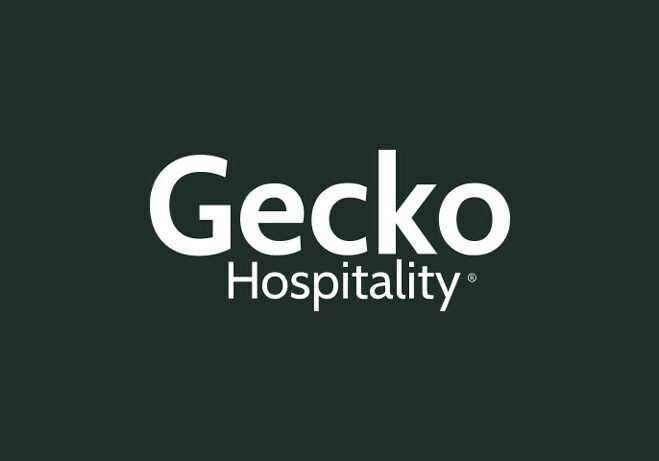
Restaurant Management 101: How to Handle Employee Poaching
How to Handle Employee Poaching and Strengthen Retention in 2025’s Restaurant Industry
Standing out as a qualified restaurant management candidate in 2025 requires more than surface-level answers about staffing or scheduling. The best restaurant managers understand that modern hospitality leadership goes far beyond guest service — it’s about safeguarding talent, protecting company assets, and maintaining operational integrity in a highly competitive environment.
When preparing for your next management interview, be ready to discuss serious business issues like employee poaching, toxic communication, immigration compliance, and financial acumen. Employers want to see that you not only understand these risks but also have strategies to manage them.
Understanding Employee Poaching in the Hospitality Industry
Employee poaching — the act of competitors recruiting your trained staff — is one of the biggest challenges facing restaurants in 2025. The post-pandemic labor shortage and a shrinking pool of experienced hospitality professionals have created an aggressive talent market. Many operators are now offering signing bonuses, referral incentives, and flexible schedules to lure employees away from their current jobs.
In this environment, strong retention and legal compliance are not just HR topics; they are business survival skills.
When discussing employee poaching during an interview, managers should show that they can think strategically — not emotionally. Avoid clichés about “people leaving for more money.” Instead, focus on concrete ways to protect talent, company data, and brand reputation.
Strategies That Demonstrate Leadership and Business Intelligence
1. Protect company information and intellectual property.
Show that you understand how to minimize risk when employees leave. Mention steps like requiring signed non-disclosure and non-solicitation agreements, retrieving all company materials (keys, devices, manuals, digital files), and ensuring proper offboarding protocols. A strong candidate will also note the importance of preserving digital records, such as copying the departing employee’s email activity from the previous 90 days for compliance and evidence purposes.
2. Recognize the financial impact of turnover.
In 2025, the average cost to replace a restaurant manager is between $14,000 and $20,000, factoring in lost productivity, recruitment, and training time. Show that you understand the financial burden of high turnover and that you focus on long-term retention through mentorship, competitive compensation, and employee engagement.
3. Collaborate with legal and HR professionals.
Mention that managers should never draft legal documents themselves. Working closely with employment attorneys to establish enforceable agreements and clearly define confidential information demonstrates maturity and professionalism.
4. Focus on culture to prevent poaching.
Employee loyalty is built through culture, not contracts. Managers who create transparent communication, recognition systems, and career growth pathways make employees less vulnerable to poaching offers. Share examples of how you’ve improved retention through mentorship programs, team development, or training incentives.
5. Tie retention strategy to the bottom line.
A smart manager understands that preventing turnover protects profit. You might say:
“I see employee retention as a financial strategy — not just an HR function. Every employee we keep saves thousands in rehiring costs, preserves consistency, and protects our guest experience.”
ICE Compliance: Protecting Your Restaurant from Legal Risk
Immigration compliance remains a major enforcement focus in 2025. U.S. Immigration and Customs Enforcement (ICE) continues to perform unannounced audits targeting restaurants, hotels, and food service companies across the country. Digital I-9 systems and e-verification platforms reduce paperwork errors but do not eliminate liability.
Managers must know that they are personally accountable for compliance — both civilly and criminally — even when “just following orders.” Demonstrating awareness of ICE policies and proactive compliance measures can make you stand out in an interview as someone who protects the business from serious legal and reputational risks.
When discussing this topic, you might say:
“I take I-9 and work authorization compliance seriously. In my previous role, I worked closely with HR to audit documentation regularly, ensure up-to-date verification training, and confirm our hiring partners were aligned with federal standards. I believe proactive compliance protects both our employees and our brand.”
Bringing up this issue in an interview not only shows that you’re informed but also that you understand the broader business and regulatory environment shaping the industry.
Financial Acumen: The Core of Every Management Role
If you could summarize a restaurant manager’s job in one word, it would be profitability. Success depends on the ability to make informed, data-driven decisions that balance guest satisfaction with operational efficiency.
Top-performing managers in 2025 understand how to read and apply financial reports, manage inventory strategically, and adjust labor models based on real-time demand. When interviewing, show that you can connect financial metrics to business outcomes. For example:
“In my last role, I reduced food waste by 8% through tighter inventory tracking and vendor negotiations. That directly improved our profit margins and allowed us to reinvest in training programs for staff.”
Understanding how every decision — from scheduling to portion control — affects revenue and cost structure separates a “good” manager from a “great” one.
The Modern Restaurant Manager Interview
To stand out as a qualified candidate in 2025, demonstrate that you understand management as a holistic discipline. Staffing and scheduling are part of the role, but so are compliance, financial literacy, and protecting the business from external threats.
When asked about challenges facing restaurants today, frame your answer around leadership and accountability. You could say:
“The biggest challenge isn’t just hiring — it’s retaining people in a way that supports profitability and compliance. I think about every decision in terms of cost, culture, and long-term stability.”
Finally, remember the best interview advice from transitional career coaches: Be yourself — but be the most prepared version of yourself. Know your numbers, understand your legal and ethical responsibilities, and demonstrate that you can handle the complex realities of running a restaurant in 2025.